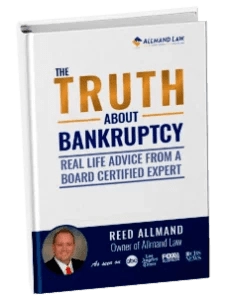
Why Your Vehicle Must Be Insured During Bankruptcy
 When a debtor files for bankruptcy, they are required to have insurance on their vehicle even if it is exempt, fully paid for and the debtor says he is not driving the vehicle. Because the debtor’s property becomes part of the bankruptcy estate when the debtor files for bankruptcy, the bankruptcy estate could be held liable for any claims against the owner of the vehicle. For example, let’s say that the debtor filed for bankruptcy and a few days later he/she got into a car accident with no insurance. The other party in the car accident can not only sue the debtor, they may be able to sue the bankruptcy estate which could jeopardize the assets in the bankruptcy estate which are not considered exempt and in the end reduce the amount of money the creditors were paid because of the new claim.
When a debtor files for bankruptcy, they are required to have insurance on their vehicle even if it is exempt, fully paid for and the debtor says he is not driving the vehicle. Because the debtor’s property becomes part of the bankruptcy estate when the debtor files for bankruptcy, the bankruptcy estate could be held liable for any claims against the owner of the vehicle. For example, let’s say that the debtor filed for bankruptcy and a few days later he/she got into a car accident with no insurance. The other party in the car accident can not only sue the debtor, they may be able to sue the bankruptcy estate which could jeopardize the assets in the bankruptcy estate which are not considered exempt and in the end reduce the amount of money the creditors were paid because of the new claim.
Let’s take a look at the possibilities:
Let’s say you are driving a vehicle that is completely paid for and you have no insurance. You have a car accident in this vehicle a few days after filing bankruptcy and you cause damages of at least $30,000. If your bankruptcy estate had non-exempt assets worth about $40,000, your car accident could literally reduce the bankruptcy estate’s holdings by $30,000, leaving only $10,000 for payment to creditors. But if you had insurance when you were in that accident that insurance would hypothetically absorb most if not all of the liability created by the car accident. If for some reason the debtor is unable to get insurance on their vehicle, the bankruptcy trustee will require that they hand over their keys, demand that they store the vehicle and will prohibit them from driving the vehicle.






